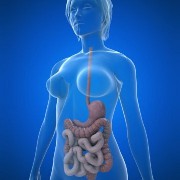 Photo: Getty Images
Photo: Getty Images
Systemic scleroderma patients often experience gastrointestinal conditions among other discomforts, especially if the disease has affected the digestive system or some of its organs. They are often victims to acid reflux, swallowing difficulties, heartburn, constipation, diarrhea, ulcers of the stomach, etc. Here are tips that may prove helpful in bringing symptomatic relief:
1. Acid reflux due to reduced esophageal motility:
Usually, swallowing is done automatically after chewing and food is transported to the stomach, but the coordination of the food pipe muscles at the time of contraction (that pushes the food down) is challenged in those suffering from scleroderma, which can make swallowing difficult. As a result the patient may experience heartburn or gastroesophageal reflux disease, or GERD. They may also develop a persistent hoarse voice, suffer from regurgitation of food, mouth ulcers or have an acid taste in the mouth. To manage the symptoms of GERD, patients are advised to try both lifestyle changes and medication. The treatment is basically aimed at increasing the motility of the gut and decreasing the production of acid.
• Lifestyle changes:
o Reduce intake of acidic foods such as citrus fruits as well as caffeine, soda drinks, fatty foods and those with pH values below 6
o Eat and small frequent meals
o Drink fluids 2 hours before bedtime and no later
o Reduce smoking
o Keep the head of the bed elevated by 6 to 8 inches
• Medications (check dosages, frequency, duration with your doctor):
o Over-the-counter medicines such as those with ranitidine hydrochloride or famotidine help in reducing acidity temporarily
o Prokinetic medicines will aid in improving gut motility
o Chemcials such as metaclopromide, erythromycin, and octreotide promote gut motility and tackle swallowing difficulties
(Source: Scleroderma Foundation; Article Title: Gastrointestinal Involvement; Report Tile: Digestive System Invovlment in Scleroderma; Author: Dinesh Khanna,MD,MSc, Assistant Professor of Medicine, Division of Rheumatology, University of California, Los Angeles; URL: http://www.scleroderma.org/medical/gastro_articles/khanna_2011.shtm)
2. Bloating, diarrhea or constipation:
When the small intestine is affected by systemic scleroderma then it is possible that the patient will experience bloating after a meal or may even get loose stools. The primary function of the small intestine is to absorb the nutrients of the foods broken down. The bloating or diarrhea may be caused because of the loss of normal muscle contraction and this causes a puddle of intestinal content to form after a meal and eventually it promotes growth of bacteria in a portion of the intestine that is normally sterile. In case the patient experiences bloating or diarrhea, he or she will be advised to take broad spectrum antibiotics. With repeated loose stools, it is possible that weight loss will begin to occur and then will need to be addressed.
On the other hand, if the large intestine is the affected organ, then the patient may experience constipation due to the large intestine muscles’ reduced ability to push waste products out of the body. This can be worked around by following a high fiber diet or using laxatives and supplements as per the doctor’s advice.
(Source: University of Michigan Health Systems; The Department of Internal Medicine; Scleroderma Program; Division of Rheumatology; Article Title: Gastrointestinal Issues; URL: http://www.med.umich.edu/scleroderma/patients/gastro.htm)
INFORMATION IN THIS ARTICLE IS NOT MEDICAL ADVICE. ALL INFORMATION GIVEN IS TO BE CHECKED WITH YOUR DOCTOR BEFORE IMPLEMENTING OR TAKING THEM AS STANDARD OR VERIFIED.
Reviewed June 15, 2011
Edited by Alison Stanton
Mamta Singh is a published author of the books Migraines for the Informed Woman (Publisher: Rupa & Co. URL: http://www.amazon.com/Migraines-Informed-Woman-Tips-Sufferer/dp/8129115174/ref=sr_1_2?ie=UTF8&s=books&qid=1298990756&sr=1-2), the upcoming Mentor Your Mind (Publisher: Sterling Publishers) and The Urban Woman’s Integrated Fitness Guide (Publisher: Hay House India). She is also a seasoned business, creative and academic writer. She is a certified fitness instructor, personal trainer & sports nutritionist through IFA, Florida USA. Mamta is an NCFE-certified Holistic Health Therapist SAC Dip U.K. She is the lead writer and holds Expert Author status in many well-received health, fitness and nutrition sites. She runs her own popular blogs on migraines in women and holistic health. Mamta holds a double Master's Degree in Commerce and Business. She is a registered practitioner with the UN recognised Art of Living Foundation. Please visit www.mamtasingh.com




Add a CommentComments
There are no comments yet. Be the first one and get the conversation started!